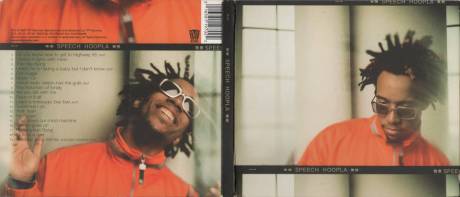This song was written in 1979 by Bob Marley, and came out in 1980 in his album Uprising. I recently rediscovered it, when wanting to hear the song Clocks in Sync With Mine, I bought the album Hoopla from contemporary rapper Speech. Redemption Song, originally named Old Pirates has an interesting history (read below), and great lyrics. Here I present the more modern version from Speech, but I highly recommend you go looking for Bob Marley’s acustic version.
Happy Sunday!
Click here to listen to Redemption Song from Speech
Here are the lyricis for Redemption Song:
Old pirates, yes, they rob I;
Sold I to the merchant ships,
Minutes after they took I
From the bottomless pit.
But my hand was made strong
By the hand of the almighty.
We forward in this generation
Triumphantly.
Won’t you help to sing
these songs of freedom
’cause all I ever have:
Redemption songs
Redemption songs
Emancipate yourselves from mental slavery;
None but ourselves can free our minds.
Have no fear for atomic energy,
‘Cause none of them can stop the time
How long shall they kill our prophets,
While we stand aside and look
Oh! Some say it’s just a part of it:
We’ve got to fulfill the book.
Won’t you help to sing
these songs of freedom
’cause all I ever have:
Redemption songs
Redemption songs
Redemption songs
Emancipate yourselves from mental slavery;
None but ourselves can free our mind.
Wo! Have no fear for atomic energy,
‘Cause none of them-a can-a stop-a-the time
How long shall they kill our prophets,
While we stand aside and look?
Yes, some say it’s just a part of it:
We’ve got to fulfill the book.
Won’t you help to sing
These songs of freedom? –
’cause all I ever had:
Redemption songs –
All I ever had:
Redemption songs:
These songs of freedom,
Songs of freedom.
Redemption Song, courtesy of Wikipedia:
“Redemption Song” is a song by Bob Marley. It is the final track on Bob Marley & the Wailers‘ ninth album, Uprising, produced by Chris Blackwell and released by Island Records.[2] The song is considered one of Marley’s greatest works. Some key lyrics derived from a speech given by the Pan-Africanist orator Marcus Garvey.
At the time he wrote the song, circa 1979, Bob Marley had been diagnosed with the cancer in his toe that later was to take his life. According to Rita Marley, “he was already secretly in a lot of pain and dealt with his own mortality, a feature that is clearly apparent in the album, particularly in this song”.
Unlike most of Bob Marley’s tracks, it is strictly a solo acoustic recording, consisting of Marley singing and playing an acoustic guitar, without accompaniment. The song is in the key of G major.
“Redemption Song” was released as a single in the UK and France in October 1980, and included a full band rendering of the song. This version has since been included as a bonus track on the 2001 reissue of Uprising, as well as on the 2001 compilation One Love: The Very Best of Bob Marley & The Wailers. Although in live performances the full band was used for the song the solo recorded performance remains the take most familiar to listeners.[citation needed]
In 2004, Rolling Stone placed the song at #66 among The 500 Greatest Songs of All Time. In 2010, the New Statesman listed it as one of the Top 20 Political Songs.[3]
The song urges listeners to “Emancipate yourself from mental slavery,” because “None but ourselves can free our minds”. These lines were taken from a speech given by Marcus Garvey in Nova Scotia during October 1937 and published in his Black Man magazine:[6]
We are going to emancipate ourselves from mental slavery because whilst others might free the body, none but ourselves can free the mind. Mind is your only ruler, sovereign. The man who is not able to develop and use his mind is bound to be the slave of the other man who uses his mind …[7][8]
In 2009, Jamaican poet and broadcaster Mutabaruka chose “Redemption Song” as the most influential recording in Jamaican music history.[9]
